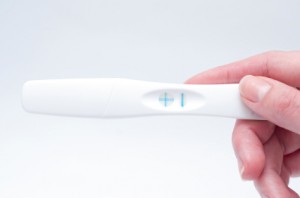Mary A. Sullivan coordinates community advocacy, education and outreach efforts for the Teen Health Center. She’s provided health education to local students and parents for over 20 years. Here she shares her thoughts about teen pregnancy prevention.
 Most teens are healthy. Since they often do not need treatment for acute or chronic medical conditions, they miss the healthcare they need the most: prevention and education. Reproductive health situations fit this bill: pregnancy testing, obtaining contraception and testing and treatment of sexually transmitted infections.
Most teens are healthy. Since they often do not need treatment for acute or chronic medical conditions, they miss the healthcare they need the most: prevention and education. Reproductive health situations fit this bill: pregnancy testing, obtaining contraception and testing and treatment of sexually transmitted infections.
Facts About Teen Pregnancy
In 2010, the local teen pregnancy rate was:
- 30.3 per thousand in Charlottesville
- 9.5 per thousand in Albemarle County
The teen birth rate in 2010 was:
- 11 per thousand in Charlottesville
- 7.4 per thousand in Albemarle County
Costs of Teen Pregnancy
The medical and sociological literature is filled with information about the many and varied societal costs when teenagers bear children. Teen pregnancy is associated with:
- Future poverty for mothers and their children
- Increased high school drop-out rates
- Poorer physical and mental health outcomes for the children born to teens
Preventing Pregnancy in Teens
Let’s look at pregnancy prevention for teens. Keep in mind that teens are as heterogeneous as adults, so one size does not fit all when it comes to preventing teen pregnancy. Those who care for and about teens should:
- Support those who have decided to postpone sexual activity
- Provide information about and access to contraception for those who are or may soon be sexually active
- Identify and give opportunities to those young women for whom having a baby seems like their sole life option
Why Teens Don’t Use Birth Control
So what stops sexually active young women from obtaining and using effective contraception?
Many teens are not aware that they can get contraception without parental permission, and many teens do not know where or how to get it. Sometimes, the attitudes of healthcare providers present obstacles, such as in cases where providers don’t ask about sexual activity or offer birth control as an option to teens.
In Virginia, minors can consent to obtain and use contraception without involving their parents, but we encourage teens to talk to their parents about these important issues.
Long-Acting Birth Control: A Recommended Option
In the past, popular contraceptive choices were birth control pills and condoms, both of which leave enormous room for user error. Inconsistent use of condoms is common, and birth control pills can be forgotten or the prescription not refilled.
In recent years, long-acting reversible contraception (LARC), which is safe, effective and easy to use, has been recommended as an optimal option for teens by healthcare providers and the American College of Obstetricians and Gynecologists, the American Academy of Pediatrics, the Centers for Disease Control and the World Health Organization. Both the contraceptive implant (Nexplanon) and the IUD (intra-uterine device) have the potential to greatly reduce teen pregnancy.
Unplanned pregnancies are preventable. Given the likely negative consequences teens face by having babies, long-acting reversible contraception can be a life-changer.
Questions? Call the Teen Health Center for a private, free conversation.
This is great information. By teaching kids about sex and birth control we will absolutely reduce their chances of becoming pregnant. Personally I think open communication also reduces some of the allure and may even (hopefully) help kids wait a little longer. We were talking to our 14 year old daughter the other day and she made a joke about condoms. We asked her what her middle school has them about contraception and if she has ever seen a condom (We’ve talked to her about this stuff in depth and speak openly). Her response- “no, they told us we are too young so we shouldn’t even be thinking about having sex.”. This is not in C’ville- it is in Albemarle County.
Do I agree they are too young in middle school? Absolutely. Do I think that is a reason to not educate them? Of course not. Not teaching them or telling them they are too young will only cause ignorance for those kids whose parents don’t tell them and increase their odds of having an unplanned pregnancy.
Study after study have shown that effective education- complete education- and access to contraception reduces unplanned pregnancies and (depending on contraceptive) STDs. I will never understand why states/ schools are afraid to use the information in developing their “family life” program. It’s not about morals or values; it’s about education.
Thank you so much for this insightful comment. I could not agree with you more, and I do not believe that this response to this question is unusual, unfortunately. At times, when I have been guest-teaching at local schools, I have been told that I am not “allowed” to address contraception, STIS, or sexual orientation/gender identity issues, even though there are no written prohibitions and FLE SOLs call for this knowledge to be imparted to students.